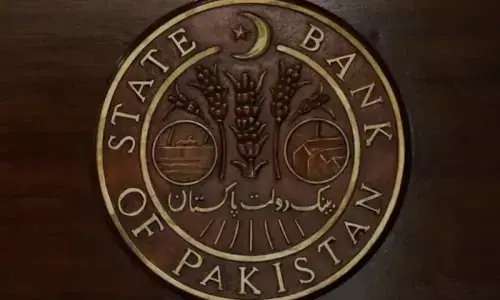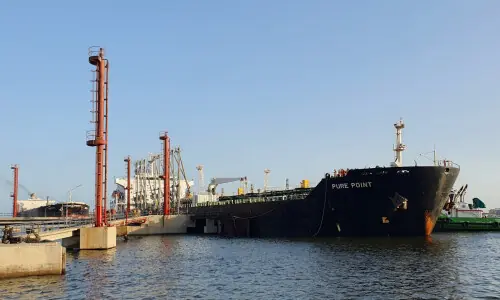KARACHI: Pakistan’s energy deficit is likely to reach 110.8 million Tonnes of Oil Equivalent (TOEs) in the next 15 years if average gross domestic product remains around 4.5 per cent, according to a document issued by the Petroleum Institute of Pakistan (PIP) on Friday.
The document, Pakistan Energy Outlook (PEO) 2013-2028, predicts that country’s energy demand would grow to 147.78m TOEs by 2027-28 against the domestic resources of 36.90m TOEs in the same year.
Addressing a media briefing at the launch of PEO, PIP’s chairman and former adviser to the prime minister on petroleum and natural resources Asim Hussain said that Pakistan Energy Outlook is a flagship document of the institute, and has been prepared with the help of independent consultants taking into account energy demand-supply models based on the economic realities of the country.
“Recommendations identified in this document provide long-term energy solutions for Pakistan to secure higher GDP growth and economic development on sustainable basis,” Mr Hussain said. He maintained that mobilising and generating affordable and environment-friendly energy resources are one of the key challenges.
He urged the government to work together with the petroleum industry in framing the policies.To a question why there is so much stress on import of LNG these days when Pakistan itself has vast gas reserves and other indigenous options, Mr Asim Hussain said, “Expensive fire is better than no fire at all.”
He said that even gas producing countries, like Qatar, are now diversifying their energy mix by considering other possibilities.
He said that besides utilising indigenous resources, Pakistan should also look for import options, too.
Presenting the outline of the PEO, Mr Akhtar Raza of Enar Petrotech said that the energy deficit will have to be met through the import if coal, oil and gas as domestic production is likely to be insufficient.
Recommendations
The document recommends the government and other stakeholders to efficiently utilise natural gas; strengthen regulatory institutions to facilitate partnership between public and private sectors; make policy for aggressive exploration and production (E&P) to incentivise exploration of on-shore and on-shore oil, gas, tight gas and shale gas; fast-track indigenous coal projects, import of LNG and cross-border gas pipeline projects to improve the country’s energy mix, exploit renewable energy resources; cut transmission and distribution losses in the power sector; and develop a competitive market to root out pricing distortions in the energy sector.
The PIP is a non-government body established in 1963 by the oil and gas industry with a vision to establish itself as an energy advisory body.
































